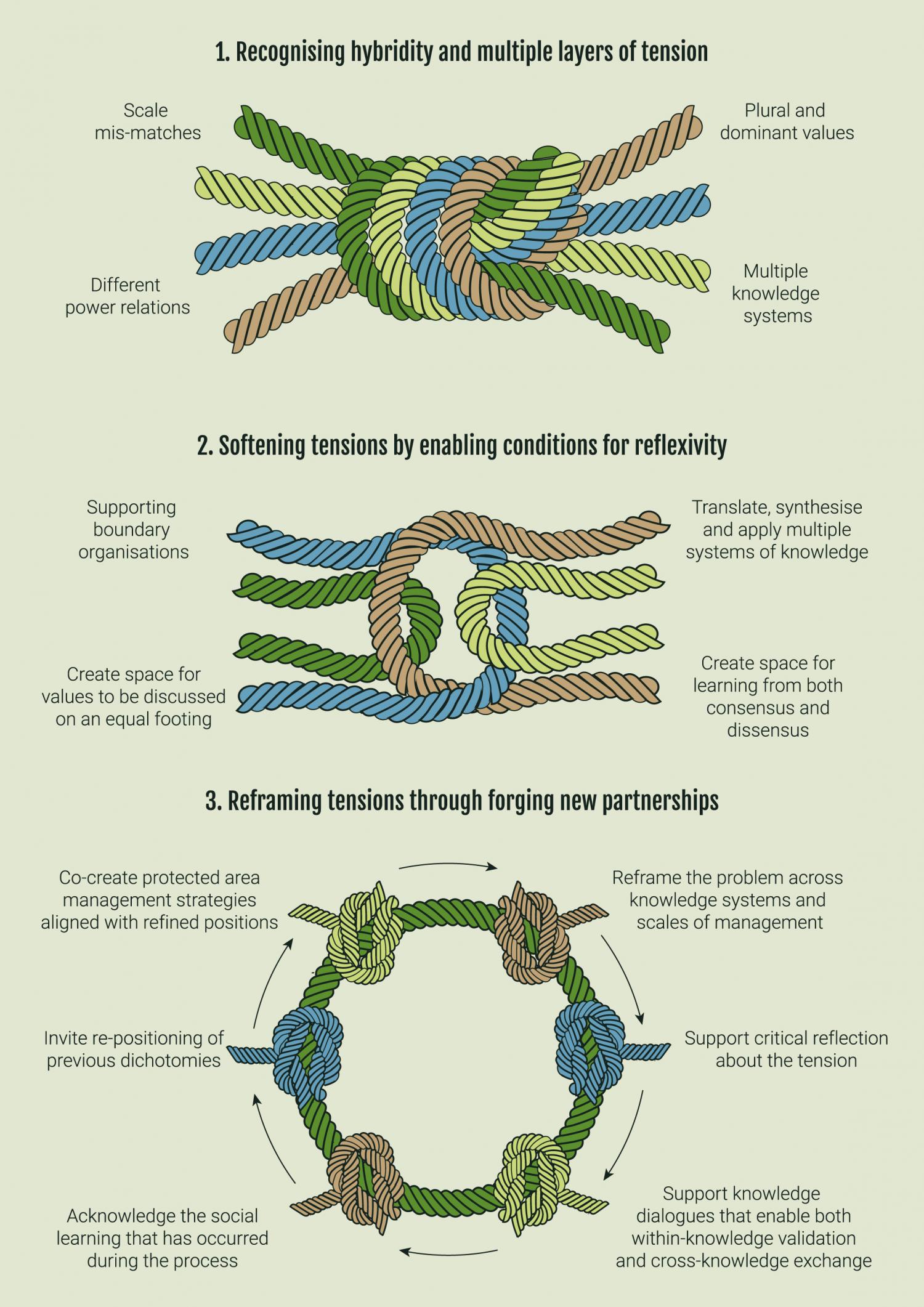
The draft Post-2020 Global Biodiversity Framework commits to achievement of equity and justice outcomes and represents a “relational turn” in how we understand inclusive conservation. Although “inclusivity” is drawn on as a means to engage diverse stakeholders, widening the framing of inclusivity can create new tensions with regard to how to manage protected areas. We first offer a set of tensions that emerge in the light of the relational turn in biodiversity conservation. Drawing on global case examples applying multiple methods of inclusive conservation, we then demonstrate that, by actively engaging in the interdependent phases of recognizing hybridity, enabling conditions for reflexivity and partnership building, tensions can not only be acknowledged but softened and, in some cases, reframed when managing for biodiversity, equity, and justice goals. The results can improve stakeholder engagement in protected area management, ultimately supporting better implementation of global biodiversity targets.
